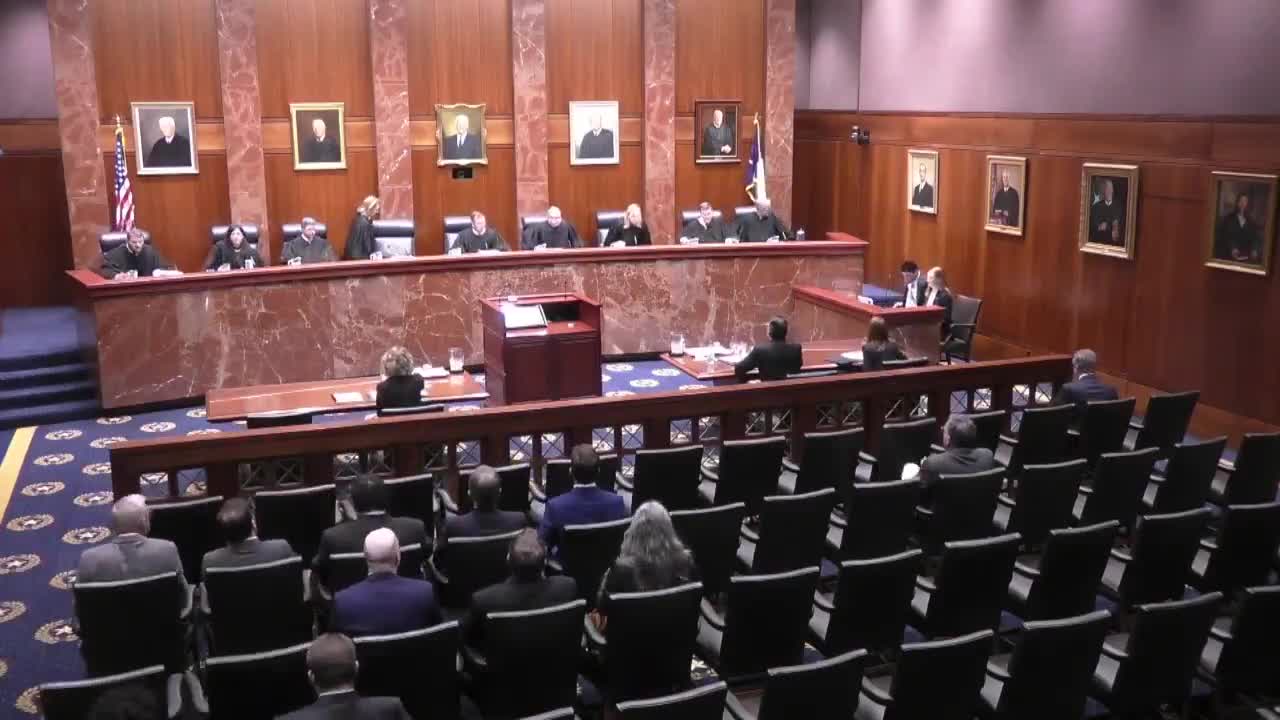Supreme Court of Texas hears dispute over whether repurchase statutes waive sovereign immunity
Get AI-powered insights, summaries, and transcripts
Subscribe
Summary
State of Texas v. JRJ Poussaint Williams (No. 240447) was argued before the Supreme Court of Texas on questions about the scope of chapter 21 repurchase statutes and whether those statutes contain a clear waiver of the State's sovereign immunity.
State of Texas v. JRJ Poussaint Williams (No. 240447) was argued before the Supreme Court of Texas on questions about the scope of chapter 21 repurchase statutes and whether those statutes contain a clear waiver of the State's sovereign immunity.
Petitioners' counsel argued that the repurchase statutes do not "clearly and unambiguously" waive the State's immunity. Counsel noted the landowners were "fully and fairly compensated" and that the deed transferring property after a Rule 11 settlement did not promise continued public use. Petitioners said the statute describes property taken "through eminent domain," and that a transfer by deed in settlement is not the same as a condemnation judgment, so the repurchase provisions should not apply to the sale at issue.
Respondent counsel framed the core question differently: "can the state use chapter 21 as both a sword and a shield?" Respondent argued that when the State followed the checklist of imminent-domain steps (notice, bona fide offer, and related statutory steps), the acquisition was "through eminent domain," and the repurchase statute provides an enforceable remedy when the State later declares the land unnecessary for public use. Respondent urged the court to enforce the statutory repurchase mechanism and to affirm the court of appeals.
Justices pressed both sides on the text and history of the statutes. They asked about the effect of a 2011 amendment that removed an apparent carve-out for the Texas Department of Transportation (TxDOT) from earlier law and whether that amendment changes the waiver analysis. Counsel for the State cited subject-matter jurisdiction provisions (referred to in argument as 21.101(c) and related sections) and said those provisions clarify procedures and venue but do not contain the explicit language needed to waive sovereign immunity.
The court also discussed practical consequences: whether allowing repurchase suits where property was transferred by settlement deeds would open the courthouse doors to routinized claims, how valuation should account for increases attributable to the condemnation purpose, and whether alternative remedies (contract breach, ultra vires actions, or suits in district court) could or should be used when a claimant contends the State failed to follow repurchase procedures.
Factual details discussed during argument included the parties' posture here: counsel described this dispute as involving roughly 3% of an originally acquired parcel and emphasized there was no allegation of bad faith or "land banking." Counsel also referenced transportation-code mechanisms for disposing of surplus TxDOT property as a separate statutory pathway that can affect valuation and priorities for resale.
The court concluded argument and took the case under advisement. No ruling was issued at the hearing.
